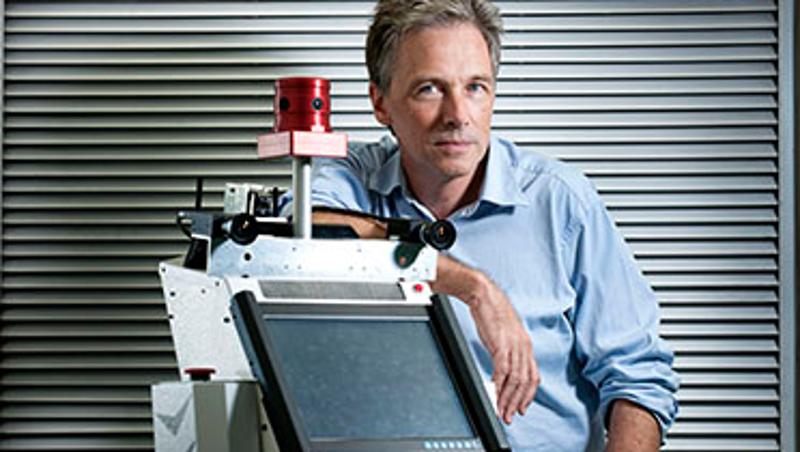
The biggest hurdle stopping robots becoming more widely used in everyday life will be the focus of a new centre for academic excellence.
The ARC Centre of Excellence in Robotic Vision has just been awarded a federal government grant of $19 million for its seven-year research program.
The Centre will be led by Professor Peter Corke, from QUT's Science and Engineering Faculty.
"It's very timely and a great opportunity to create the next generation of robots," Professor Corke said.
"The Centre will form one of the largest groups of its kind in the world, and will become a focal point for international activity.
"The Centre brings together outstanding research talent at QUT, University of Adelaide, ANU and Monash University, with overseas partner universities Oxford, Imperial College, ETH, INRIA and Georgia Tech.
"Society is on the cusp of a revolution in robotics in which personal robots will become an everyday fact of life. What we need to make this happen is to develop technology which allows a robot to perceive its environment - to sense, understand and learn from the information it gathers.
"We want to use cameras in robots, which are less costly and use less power than other types of sensors," he said.
"Cameras provide very rich information about the world, and we know from our own experience that our eyes, which are just cameras, provide the information we need to perform complex tasks like driving cars or picking up objects.
"This Centre will deliver the science and technologies that will turn cameras into powerful sensing devices capable of understanding and responding to their environment, and enabling robots to operate reliably over long periods, in complex unstructured surroundings where they will interact with humans as well as objects, many of which will require delicate handling.
"They will operate comfortably in places where it wouldn't have been safe to use robots previously because the environments were too complex to be understood."
Professor Corke said the scientists would demonstrate applications of the technology in agriculture, smart manufacturing, construction and remote inspection and monitoring.
"Robotic systems have proven their value in controlled environments where the complexity and variation of tasks are low. For example, factory robots are a mature and highly successful technology and robotic trains in Japan are amongst the most efficient in the world," he said.
"However without capabilities approaching those of human vision a vast array of potential applications is closed to robots. For example complex manual assembly, packing, manipulation, navigation, machine operation, fruit picking, remote assistance, smart homes, smarter appliances, autonomous driving, and environmental survey and monitoring.
"The technology to build the mechanical vehicles and robotic devices for these applications is available. The remaining technological roadblock is the ability to perceive and thereby adapt to the environment, and to seamlessly integrate perception with action."
RELATED STORIES
Robots Cubed: meet the next generation of entertainment
Robots - how long before they're part of the family?
Farmers to harvest millions with QUT's Farm Robots
Media contact:
Kate Haggman, QUT Media, 07 3138 0538, kate.haggman@qut.edu.au
After hours, Rose Trapnell, QUT Media Team Leader: 0407 585 901




